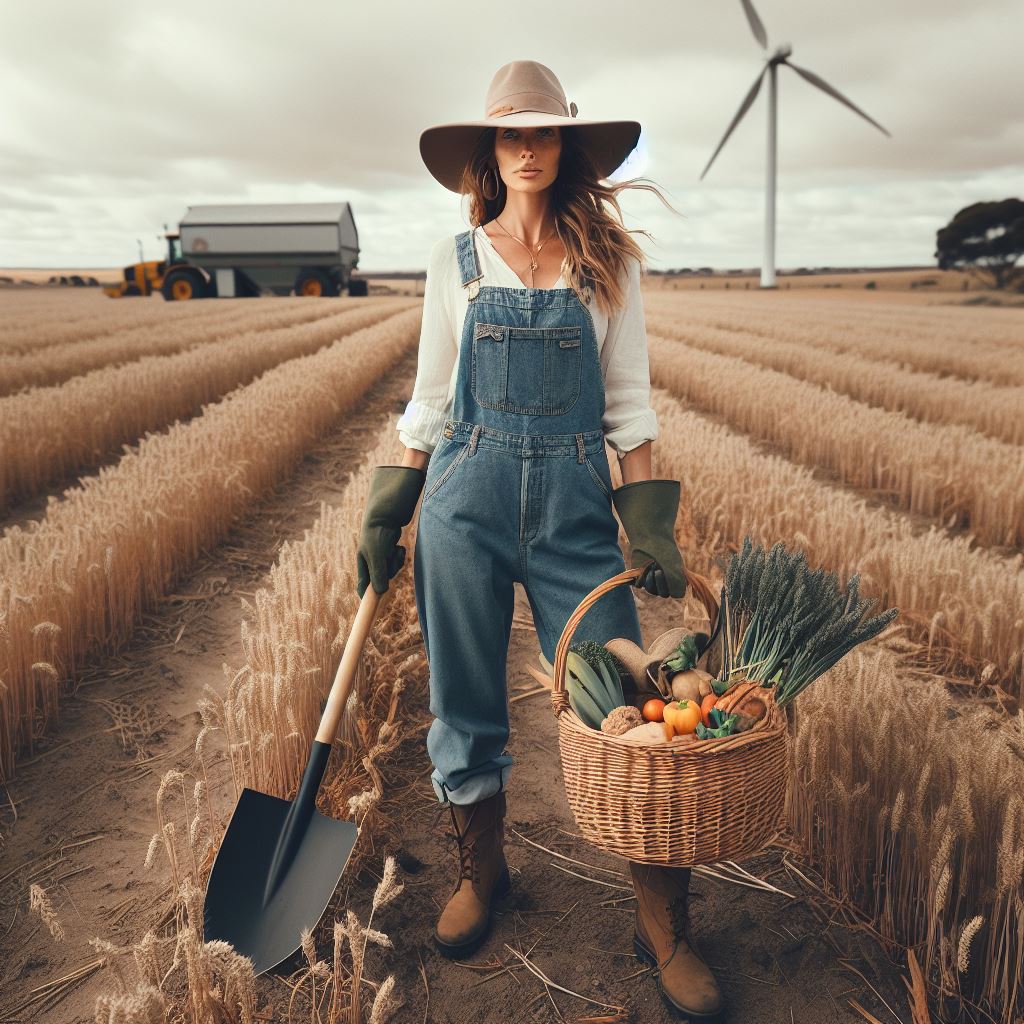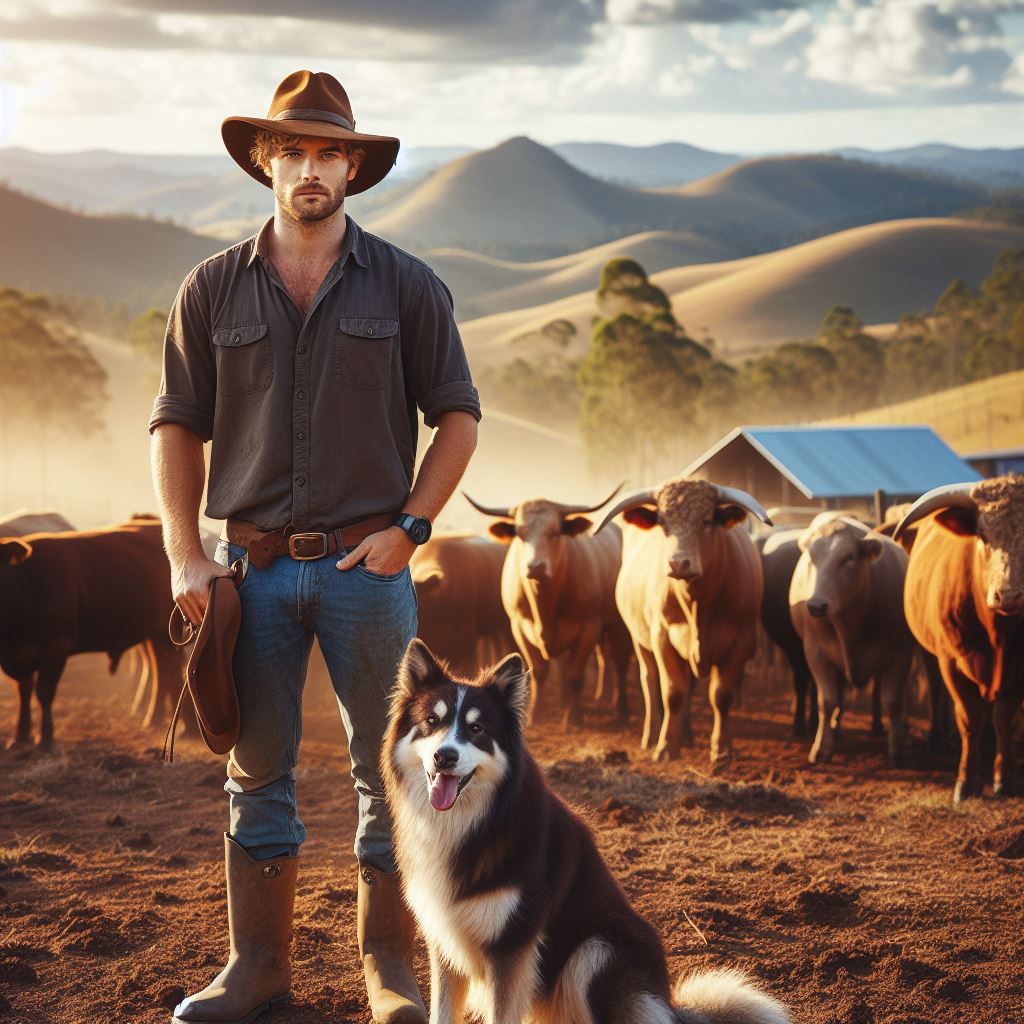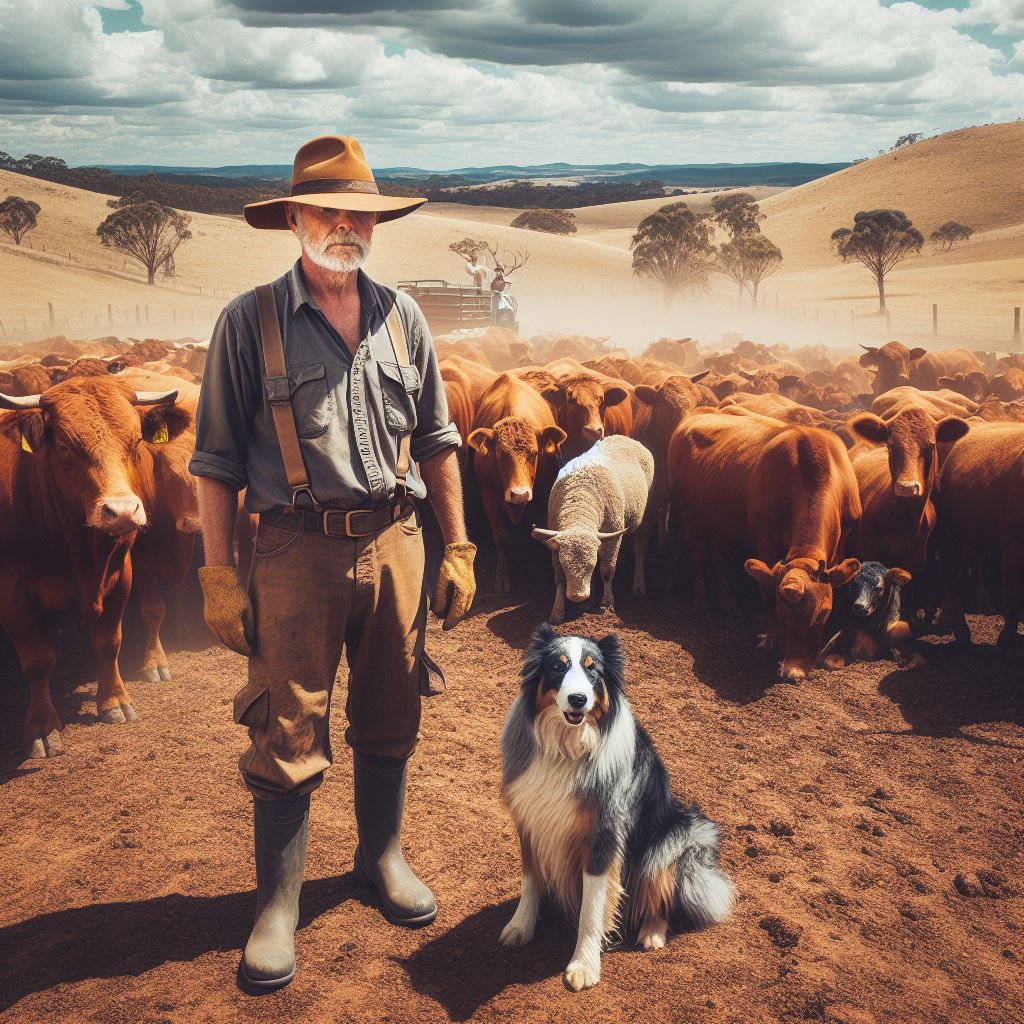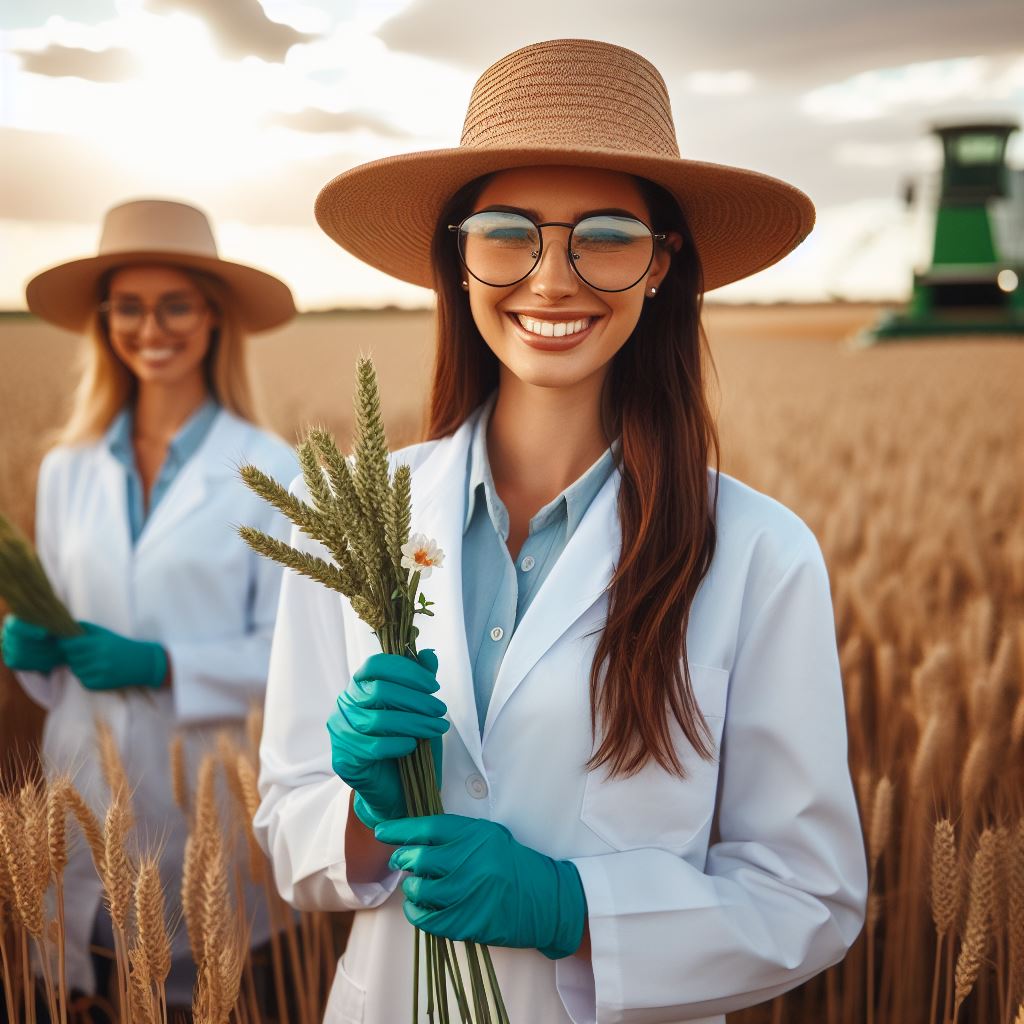Introduction
Australian women in farming face numerous barriers and challenges within the industry.
This blog post will explore their experiences, the barriers they face, and the efforts being made to overcome them.
Currently, Australian women in farming face a range of challenges that limit their full participation in the industry.
These challenges include limited access to resources, such as land, finance, and education.
Additionally, traditional gender roles and stereotypes still permeate the farming community, creating barriers for women who aspire to be actively involved in farming.
Breaking these barriers is crucial for the Australian agricultural sector. Australian women have valuable skills and knowledge that can contribute to the success and sustainability of the farming industry.
By breaking down these barriers, we not only promote gender equality but also improve productivity, innovation, and resilience within the sector.
This blog post will delve into the experiences of Australian women in farming, shedding light on the discrimination and challenges they face.
It will highlight the need for support networks and programs that empower women in farming, allowing them to overcome these barriers and flourish in their chosen profession.
Through the stories and experiences of Australian women in farming, we can gain a better understanding of the impact that barriers have on their lives and livelihoods.
Furthermore, we will explore the efforts being made by various organizations to provide support, resources, and training to empower women in the industry.
In essence, this blog post aims to increase awareness about the challenges faced by Australian women in farming and the importance of breaking down these barriers.
By doing so, we can foster a more inclusive and equal agricultural sector that benefits both women and the industry as a whole.
Historical Perspective
The traditional roles of men and women in farming were heavily gendered and unequal.
Men were seen as the primary breadwinners and decision-makers, while women’s roles were often limited to domestic tasks.
Women faced numerous barriers in accessing opportunities and resources in farming.
Limited access to education and training prevented women from acquiring the necessary skills to succeed in the field.
Additionally, women faced cultural and societal expectations that discouraged their involvement in farming.
A. Notable Australian women who have made contributions to farming
Despite these challenges, notable Australian women have made significant contributions to farming.
One such woman is Dame Tracy Margaret Atkinson, who advocated for women’s rights in agriculture.
She founded the Australian Women in Agriculture organization, empowering women in the industry.
Another remarkable figure is Mary MacKillop, who established schools and orphanages in rural areas.
MacKillop believed in providing education and opportunities for women in farming communities.
These women paved the way for future generations by challenging gender norms and breaking barriers.
B. How these women paved the way for future generations
Their achievements inspired other women to pursue careers in farming and agriculture.
In the present day, Australian women in farming have broader opportunities and access to resources.
They are actively involved in decision-making processes and have leadership roles in various agricultural organizations.
Organizations like the Rural Industries Research and Development Corporation promote gender equality in farming
They provide funding and resources to support women’s participation and advancement in the field.
The government has also implemented policies to address gender inequality in farming.
These policies focus on increasing women’s access to education, training, and financial support.
The development of mentorship programs and networking opportunities has also played a crucial role.
Women in farming can now connect with experienced professionals and gain valuable insights and guidance.
In general, the traditional roles of men and women in farming were unequal, with limited opportunities for women.
Your Personalized Career Strategy
Unlock your potential with tailored career consulting. Get clear, actionable steps designed for your success. Start now!
Get StartedHowever, notable Australian women have made significant contributions, paving the way for future generations.
Today, women in farming have broader opportunities and access to resources, thanks to the efforts of these trailblazers.
Read: Soil Health and Its Importance in Aussie Farms
Current Landscape
A. Representation of Women in Farming
- Only 32% of Australia’s agricultural workforce comprises women.
- Women hold 13% of management roles in the farming sector.
- In primary production, female representation stands at 38%.
B. Roles and Responsibilities of Australian Women in Farming
- Primary Producers: Managing crops, livestock, and land.
- Agribusiness: Marketing, finance, and supply chain management.
- Research and Innovation: Driving advancements in agricultural practices.
- Policy and Advocacy: Influencing agricultural policies and regulations.
- Education and Extension: Sharing knowledge and expertise with fellow farmers.
- Community Engagement: Fostering connections within farming communities.
- Entrepreneurship: Starting and managing agricultural businesses.
- Sustainable Practices: Promoting environmentally friendly farming methods.
C. Diversity Within the Sector
- Geographic Diversity: Women in farming are found across urban, rural, and remote areas.
- Sectoral Diversity: Engaged in diverse fields like livestock, horticulture, and grains.
- Indigenous Representation: Indigenous women contribute significantly to farming practices.
- Cultural Diversity: Women from various cultural backgrounds enrich the farming landscape.
- Age Diversity: Women of all ages participate in farming activities.
- Technological Diversity: Embracing technological innovations for efficiency and productivity.
- Leadership Diversity: Leading agricultural organizations and initiatives.
- Economic Diversity: From small-scale family farms to large agribusiness enterprises.
In the vast Australian farming landscape, women play pivotal roles across all aspects of the industry.
Despite facing challenges, they continue to break barriers and drive positive change.
With their diverse skills, expertise, and contributions, women are shaping the future of agriculture in Australia.
Read: Climate Change Impact on Australian Farms

Barriers Faced by Australian Women in Farming
The farming industry has traditionally been seen as a male-dominated field, with female often facing numerous barriers that hinder their progress and success.
These barriers, ranging from gender stereotypes to unequal access to resources, have persisted over the years, preventing Australian women from fully thriving in the farming sector.
A. Gender Stereotypes and Biases
- Women in farming often confront gender stereotypes that portray them as less capable or knowledgeable compared to their male counterparts.
- Such biases can lead to women being underestimated and overlooked for leadership roles and decision-making positions within the industry.
B. Unequal Access to Resources and Support
- Australian female in farming frequently face challenges when it comes to accessing essential resources such as land, capital, and agricultural technologies.
- Compared to men in the industry, women tend to have limited access to funding, loans, and government support programs.
- These inequalities reinforce the cycle of women being underrepresented in agricultural enterprises and hinder their ability to establish and expand their own farms.
C. Cultural and Societal Factors
- Deep-rooted cultural norms and societal expectations often discourage women from pursuing careers in farming and agricultural-related fields.
- The prevalent belief that farming is physically demanding and unsuitable for women further perpetuates these barriers.
- The lack of female role models and mentors in farming exacerbates the problem, making it more difficult for women to envision themselves succeeding in the industry.
D. Difficulties in Balancing Work and Family Responsibilities
- Australian women in farming face the additional challenge of balancing their work commitments with family responsibilities.
- Farming requires long hours, physical labor, and constant attention, leaving limited time for women to fulfill their roles as caregivers and maintain a work-life balance.
- The lack of affordable and accessible childcare services and family support networks further exacerbates this issue.
E. Breaking the Barriers
To overcome these barriers and create a more inclusive and equitable farming industry, several measures can be taken:
- Challenging gender stereotypes and biases through education and awareness programs to promote equal representation and opportunities for women.
- Implementing policies that provide equal access to resources, funding, and support for women in farming.
- Creating mentorship programs and networks that connect aspiring female farmers with successful women in the industry.
- Advocating for flexible work arrangements and family-friendly policies to support women in balancing their work and family responsibilities.
- Investing in childcare facilities and family support services to alleviate the burden of childcare for women in farming.
Australian women in farming face significant barriers that hinder their progress and success within the industry.
By addressing gender stereotypes, promoting equal access to resources, and supporting work-life balance, we can break down these barriers and create a more inclusive and thriving farming sector.
It is crucial to recognize and value the contributions and potential of Australian women in farming for the benefit of the entire agricultural community.
Read: Challenges Faced by Australian Farmers in 2024
Efforts to Break Barriers
A. Supportive Organizations and Initiatives
Numerous organizations and initiatives have emerged in Australia to support and empower female in farming.
Efforts such as the Rural Women’s Network and the National Farmers’ Federation Women’s Committee have played a vital role.
Through these organizations, women are provided with resources, networks, and opportunities for personal and professional growth.
Their aim is to break down barriers and promote gender equality within the farming industry.
Stand Out with a Resume That Gets Results
Your career is worth more than a generic template. Let us craft a resume and cover letter that showcase your unique strengths and help you secure that dream job.
Get HiredB. Equal Opportunities
Mentorship programs have been introduced to provide guidance and support to aspiring women farmers.
Experienced individuals in the field mentor young women, sharing their knowledge and helping them overcome challenges.
Networking events facilitate connections among female in farming, creating a supportive community where they can exchange ideas and experiences.
These initiatives forge strong relationships, foster collaboration, and encourage female to pursue their farming dreams.
C. Governmental Policies and Subsidies
The Australian government has recognized the need to reduce the gender gap in farming and has implemented various policies.
Government initiatives include subsidies and grants specifically designed to support women in the agriculture sector.
Financial assistance schemes help women farmers access capital and invest in their businesses.
Additionally, the government encourages gender-sensitive agricultural policies and programs that promote equal opportunities.
D. Inspiring Examples
Australia takes pride in its successful women farmers who have broken barriers and achieved remarkable success.
One inspiring example is Jane Smith, a third-generation farmer who transformed the family farm into a thriving organic enterprise.
Despite initial skepticism, Jane persisted and is now celebrated as a role model for women in the industry.
Another remarkable story is that of Maria Lopez, who, through her perseverance, turned a barren plot of land into a flourishing vineyard.
These female have not only triumphed over challenges but have also inspired a new generation of female to enter farming.
Efforts to break barriers and empower Australian female in farming have gained significant momentum.
Transform Your LinkedIn for Maximum Impact
Elevate your professional brand with a LinkedIn profile that attracts recruiters, showcases your expertise, and maximizes opportunities. Stand out in your industry with a profile built for success.
Boost ProfileOrganizations, initiatives, mentorship programs, networking events, governmental policies, and subsidies all contribute to creating equal opportunities.
The success stories of female farmers serve as beacons of inspiration and show that with determination, female can thrive in farming.
Through continued support, collaboration, and recognition, the farming industry can achieve true gender equality.
Read: Technology’s Role in Modern Australian Farms
Conclusion
Australian female in farming face numerous barriers that hinder their progress in the agricultural industry.
These include limited access to resources, gender stereotypes, and lack of representation.
Breaking these barriers is crucial for creating a more equitable and sustainable farming sector.
By removing these obstacles, Australian women can contribute their unique skills and perspectives to the industry, leading to increased productivity and innovation.
Moreover, it will create a more diverse and inclusive farming community, where all voices are heard and valued.
Fortunately, progress has been made in recent years. Many organizations and initiatives are supporting and empowering women in agriculture, providing them with training, networking opportunities, and access to financing.
This progress shows the enormous potential for further advancement and success in the future.
To truly break these barriers, we need the support and celebration of all individuals invested in the farming industry.
Raising awareness, advocating for policy changes, and supporting women-led initiatives are just a few ways we can contribute.
Let us stand together, recognizing the invaluable contributions of Australian women in farming, and work towards a more inclusive and thriving agricultural sector.




